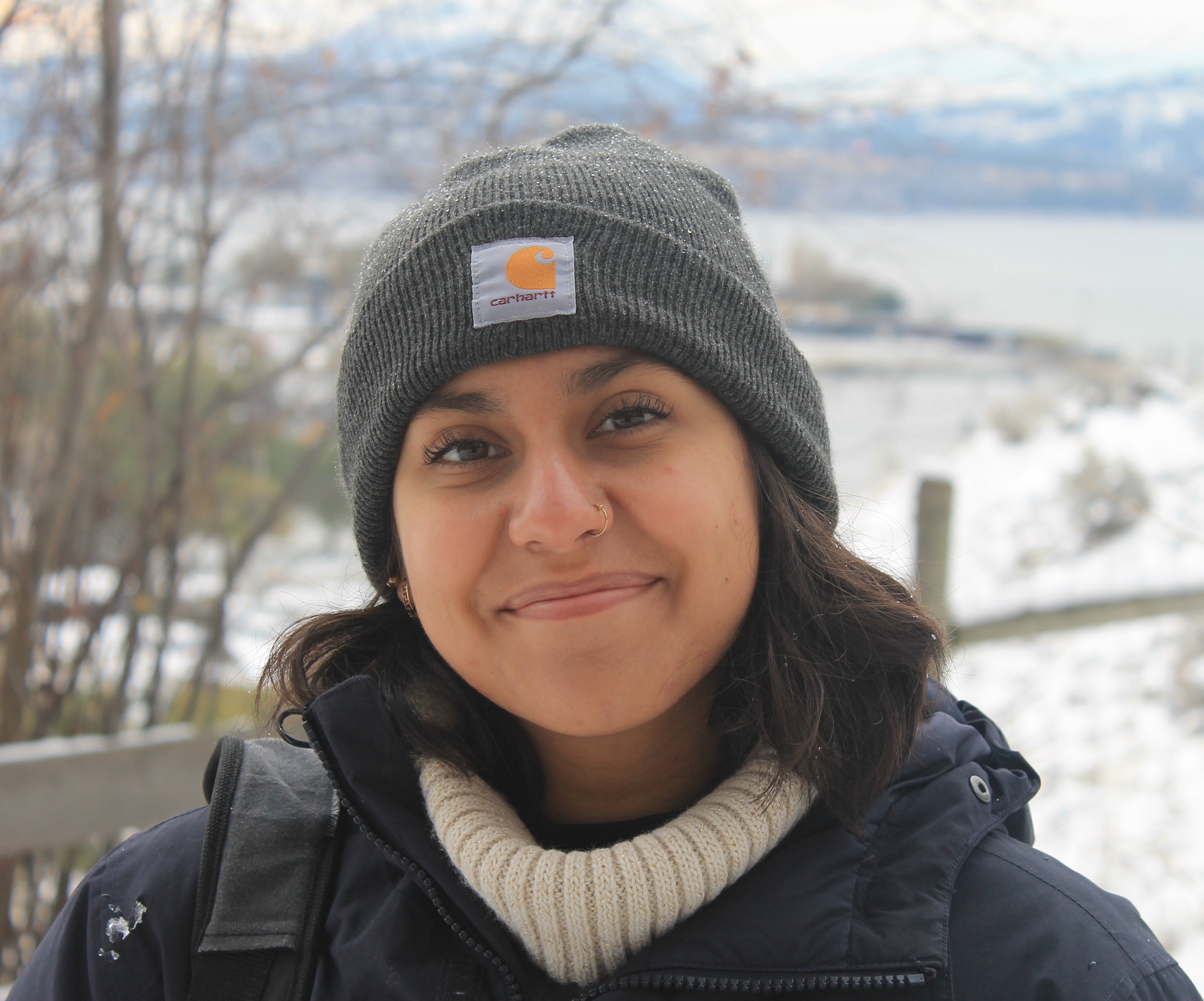Yeslie Lizarraga is a settler in the traditional and unceded territories of the Musqueam, Squamish, and Tsleil-Waututh Nations.
She is in her fourth-year of her Sociology major and also takes part in climate justice organizing on and off campus


Yeslie Lizarraga
Before coming to so-called Canada for university, she grew up in what is now the metropolitan area of Mexico City. Her research interests include sociology of race and ethnicity, cultural sociology, and environmental sociology.
Her honours research, under the supervision of Dr. Ethan Raker, situates and explores colonial hegemony in the evolution of contemporary Mexican identity as understood by Mexican youth living abroad.
How did you become interested in this topic? Why did you choose it for your thesis?
This experience of migration and encountering two different (post)colonial contexts was precisely what sparked my interest in the topic I explore in my honours thesis.
I wrote about Mexican identity and its colonial contradictions for the first time in my SOCI 302 final paper, but I felt like I had only scraped the surface of the topic and the literature, so I decided to expand on it through honours. I was also told as a tip to pick a topic I would not mind reading a lot about, and while writing my 302 paper I felt like I could read and read about this, so I thought it was perfect for this reason too!
Can you summarize your project and its main findings for us?
I interviewed 5 young people from Mexico who live abroad (4 in Canada and 1 in Ireland). The aim of my project is to examine people’s engagement with mainstream narratives about national identity and how they make sense of the complexities and contradictions embodied in meanings of ‘being Mexican’.
While I am still analyzing my data, some preliminary findings that have come up are the use of “myth” in everyday language to describe mestizaje, which is in opposition to what we’ve been taught about mestizaje as an essential truth of our identity.
Another very interesting finding, which directly corresponds to my second research question asking “How do these understandings evolve when encountered with other contexts of colonialism and resistance?”, is that people don’t necessarily identify with the meanings they previously held about ‘being Mexican’ anymore. People begin questioning what it means to be Mexican both in an individual and a collective sense when critically analyzing Mexico in light of colonialism, neocolonialism, racism, and class inequality, to name a few things.
What was your favourite part of doing research?
I really like qualitative research because you get to connect with people and learn from them.
Another thing I like, on top of finding new things about a topic I’m passionate about, is witnessing all the growth on my research project. There’s so many unexpected turns that can be a little daunting and stressful at first, but after incorporating them into my project it feels very exciting and fulfilling.
If you could continue this project, what other facets to your topic or research question would you want to explore?
Some of the future work stemming from this project that I’ve identified is incorporating different regional identities within Mexico into the scope and looking at how their engagement with narratives and concepts of national identity relate or differ. Another aspect I would like to expand on is exploring different contexts of colonialism and resistance, like the U.S. or Australia, and how Mexicans there make sense of their identity.


